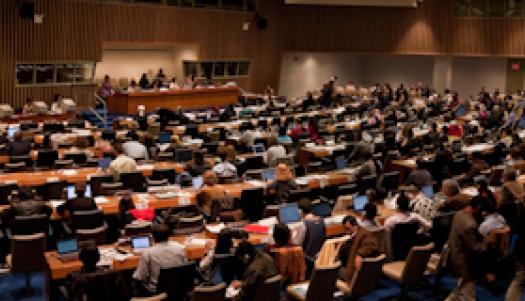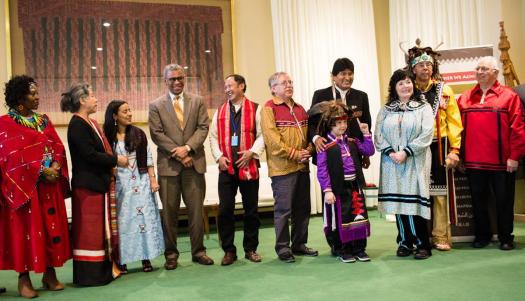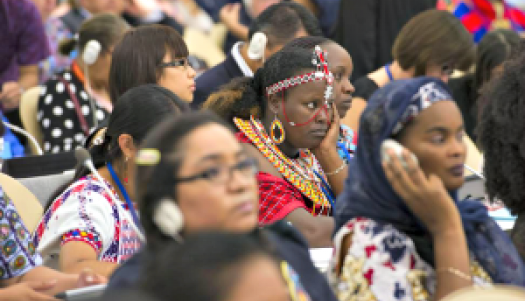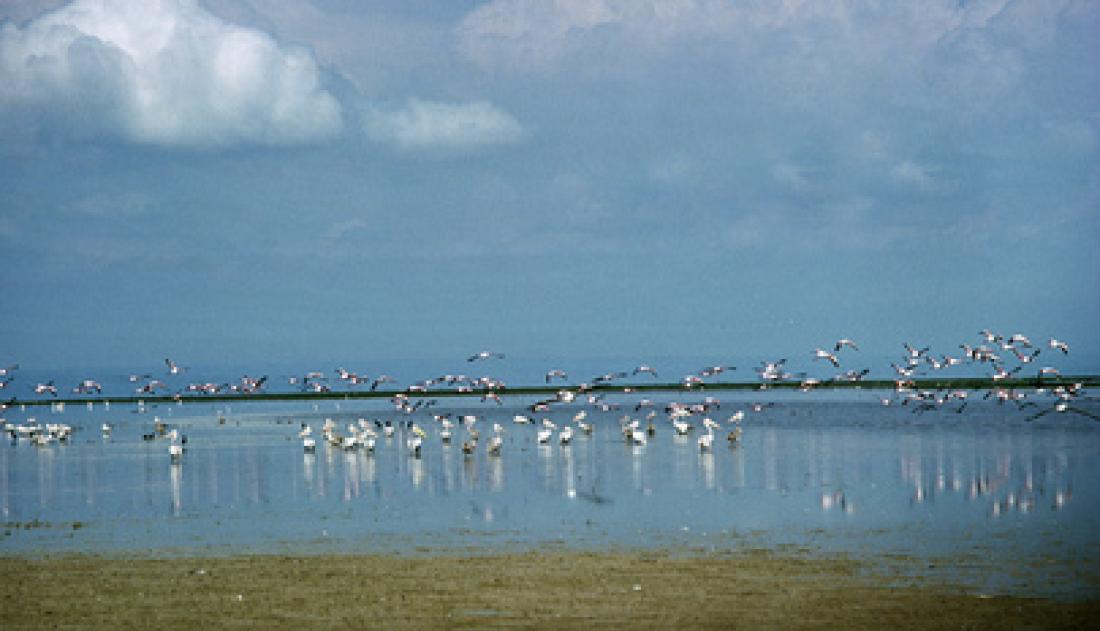
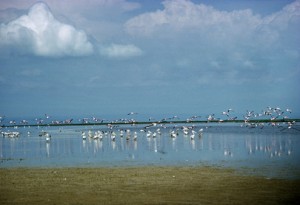 Reaching an historic agreement over the weekend at COP 21, also known as the United Nations Climate Change Conference, in Paris was no easy task. United Nations agreements are made by consensus where a large number of States have to consider their political constituents back home. Indigenous Peoples around the world, including those who attended COP21, were lobbying States to ensure that language in the agreement would ensure respect for their rights.
Reaching an historic agreement over the weekend at COP 21, also known as the United Nations Climate Change Conference, in Paris was no easy task. United Nations agreements are made by consensus where a large number of States have to consider their political constituents back home. Indigenous Peoples around the world, including those who attended COP21, were lobbying States to ensure that language in the agreement would ensure respect for their rights.
For Indigenous Peoples, climate change is not only an environmental issue but also a human rights issue as it touches upon the core of their existence. Indigenous Peoples depend on natural resources for their livelihood and often inhabit fragile ecosystems. Indigenous Peoples are also among the world’s most marginalized, impoverished and vulnerable peoples. At the same time, they bear the brunt of climate change and have very few resources to cope with the changes.
For Indigenous Peoples, the United Nations Declaration on the Rights of Indigenous Peoples should be at the heart of any negotiation and implementation process. Indigenous Peoples saw the Climate Change Conference in Paris as an opportunity to push for stronger human rights wording not only in the preamble but also in the various articles of the agreement to ensure respect for Indigenous Peoples’ rights. Sadly, the agreement asks States to merely consider their human rights obligations, rather than comply with them.
The Paris Agreement commits all countries of the world to cut their carbon emissions, which is an enormous step. Whether this will solve the problem of climate change remains to be seen. The agreement sets minimal standards, leaving it up to everyone to implement it in good faith.
I call on all States to make sure that Indigenous Peoples fully participate in such processes so that the agreement is implemented at the national and local levels in a sustainable way that is in line with Indigenous Peoples’ traditional knowledge and practices. It is essential that States are mindful of Indigenous Peoples’ socio-economic limitations as well as their spiritual and cultural attachment to their lands and waters and ensure their free, prior and informed consent in such processes.
To borrow the words of Chief Perry Bellegarde of the Assembly of First Nations in Canada, “the agreement serves as a floor, not a ceiling, and now is the time for action.”
I call on States to adhere to their obligations in respecting the rights of Indigenous Peoples in order to exceed the minimum standards set in this historic agreement.
 Welcome to the United Nations
Welcome to the United Nations
